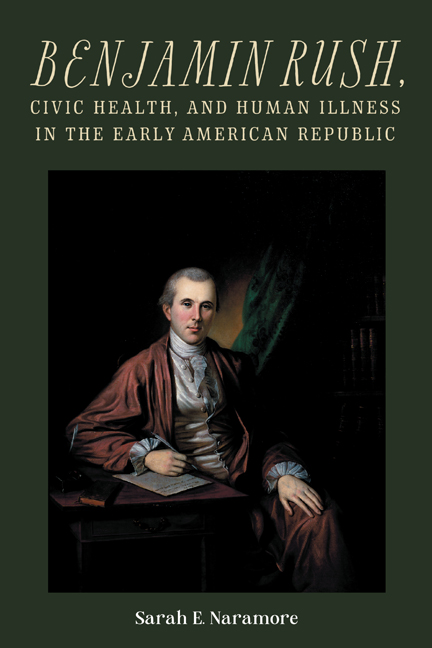Overview
Published online by Cambridge University Press: 10 January 2024
Summary
Historians of the American Revolution and Early Republic habitually remind us that the creation of a new nation did not occur in a day or even in the course of the War for Independence. The unfolding of a new identity, debate over the nature of the body politic, and psychological transition from subject to citizen all took time, to say nothing of violent conflict. In the field of medicine an analogous transformation took place from the late eighteenth century through the early years of the nineteenth century. A series of physicians tried to link health, illness, therapeutics, and physiology together into rational and self-contained “systems” of medicine. While they shared characteristics across time and space, the systems appeared to create a progressive trajectory for medicine, inching it from a focus on expertise rooted in tradition to one rooted in study and empiricism. While that progressive narrative appears false with hindsight it felt very real to medical men at the end of the eighteenth century. In the United States, these two transitions intersected and profoundly shaped early American medicine. Benjamin Rush and his contemporaries debated their new situation and the effect it would have on the bodies, minds, and spaces of their patients. This inspired Rush to become a systematist, one who eagerly compiled and organized information, striving to create comprehensive medical guidance for the new republic.
Rush believed American bodies needed a new medical system for the new nation. His efforts followed accepted thinking at the time that emphasized the interconnectedness of individuals, their society, and their physical surroundings. Revolution altered society and arguably the physical environment between urbanization in the East and American colonial conquest in the West. Rush saw an additional opportunity, however. A new society could also be molded to create a healthy population. Meanwhile, Rush and his fellow doctors underwent the same personal transformations as their patients. Coming of age as a physician and becoming an American were simultaneous events for Rush and his closest friends. While little of what Rush worked on would be considered modern public health there is no doubt that his work was designed to ensure the health of the public.
- Type
- Chapter
- Information
- Publisher: Boydell & BrewerPrint publication year: 2023



